Save with our Tax Refund Sale - Shop Now
Turbos & Kits - Turbo Kits, Greddy Turbochargers Kit and Greddy Turbocharger Kit
Turbos & Kits - Enhance your vehicle's performance with high-quality turbochargers and kits from Vivid Racing. Discover a wide range of options designed to boost horsepower and torque for an exhilarating driving experience. Shop now for the best selection in aftermarket performance parts!
Manufacturers
- 034 Motorsports (18)
- AFE (16)
- AMS Performance (54)
- APR (17)
- ATP Turbo (415)
- ATS Diesel (77)
- Agency Power (2)
- BD Diesel (45)
- BMTS Turbos (2)
- Banks Power (3)
- BlackBoost USA (9)
- Blitz (5)
- Blouch Turbo (229)
- Boost Logic (12)
- BorgWarner Turbos (90)
- Brabus (2)
- CTS Turbo (23)
- Comp Turbo (504)
- Continental (3)
- DW Diesel (63)
- Dinan (3)
- Dorman (1)
- Dynojet Research Inc (6)
- Edelbrock (1)
- Extreme Turbo Systems (569)
- FEED (2)
- Fabspeed (1)
- Fleece Performance (16)
- Ford Racing (3)
- Full Race (22)
- Full Send Diesel (12)
- Garrett (70)
- Greddy (76)
- GrimmSpeed (5)
- HKS (55)
- HPA Motorsports (7)
- Hellion Turbo (15)
- Hitachi (3)
- Holley (1)
- IHI Turbo (34)
- ISR Performance (11)
- Industrial Injection (245)
- InlinePro (3)
- JUN (1)
- M-Engineering (2)
- MAPerformance (1)
- Mahle (45)
- Mishimoto (1)
- Mitsubishi Turbos (54)
- No Limit Fabrication (7)
- PPE Diesel (9)
- PRL Motorsports (6)
- Powerhouse Racing (80)
- Precision Turbo & Engine (1576)
- Premier Tuning Group (5)
- Private Label Mfg (4)
- Pure Turbos (53)
- RV6 Performance (3)
- RennTech (7)
- Rotomaster (377)
- SPOON Sports (2)
- SSP (2)
- TTE Turbo (304)
- Ticon Industries (1)
- Titan Motorsports (2)
- Tomei (58)
- Tomioka Racing (45)
- Turbo Specialties (65)
- Turbonetics (349)
- Turbosmart (37)
- Vargas Turbocharger Technologies (149)
- Wehrli Custom Fabrication (33)
- Weistec (40)
- XDP (27)
- do88 Performance (1)
Price Range

Need a Boost? | Forced Induction vs Natural Aspiration
There are four ways to give your car a major boost in power.
Adding a shot of nitrous is one. But it can work with any of the three techniques in raising power in your engine – which we we’ll talk about quite extensively.
We know for a fact that naturally aspirated can’t be beaten when it comes to throttle response. Thus, some tuners prefer to keep it that way. So, what do they do to raise power? They make the engine bigger.
They live by the “There is no replacement for displacement” adage.
You see, the main reason for increasing displacement is introducing more air into the combustion chamber. More power requires more air.
The amount of power an internal-combustion engine can produce depends primarily on how much fuel it can burn and how quickly and efficiently it converts that heat to mechanical force. But fuel requires oxygen to combust, so an engine's maximum output depends largely on how much air it can take in to burn that fuel.
To them boring and stroking up to an engine maximum allowable displacement is the best solution so they could still have the instantaneous throttle response they long for. But there is a limiting factor for this which is called the engine block. An engine can only be bored and stroked so much until it can’t.
What do you do then? Look for a bigger engine block? That will make your car heavier and potentially lose its balance. That will also be more weight loss from your wallet.
Luckily, we have such things as Supercharging and Turbocharging; or the concept of forcing-feeding an engine more air than it would normally ingest, so that it can burn more fuel and produce more power.
The concept of forcing an engine more air than it would normally ingest, so that it can burn more fuel and produce more power. This additional intake air can be supplied by either a turbocharger or a supercharger. Both are air compressors, but they operate and perform very differently.
Aside from not having a big-ass engine in front, at the back or dead-smack in the middle of your car, government legislation and environmental concerns drive a shift away from fuel-thirsty big-displacement naturally aspirated engines toward smaller thriftier ones, automakers are increasingly employing turbochargers and superchargers to make more power from less fuel. Which makes going forced induction very timely.
Which makes us assume that there must be a replacement for displacement.
The Difference Between a Supercharger and a Turbocharger
A supercharger is a term for an air compressor that increases air density entering the combustion chamber with which to burn fuel. The earliest superchargers were all driven by power taken from the crankshaft, typically by gear, belt, or chain – like those in early Bentleys that went racing.
On the other hand, a turbocharger is simply a supercharger that is powered instead by a turbine in the exhaust stream. The first of these, dating to 1915, were referred to as turbosuperchargers and were employed on radial aircraft engines to boost their power in the thinner air found at higher altitudes.
A turbocharger uses the velocity and heat energy of the hot exhaust gases rushing out of an engine's cylinders to spin a turbine that drives an impeller which in turn compresses more air back into the engine. A supercharger also pumps additional air into the engine, but it is instead driven mechanically by the engine via a belt that runs off the crankshaft or, these days, by an electric motor.
Which One is Better?
Turbochargers capitalize on some of the "free" energy that would otherwise be completely lost in the exhaust. Driving the turbine does increase exhaust back-pressure, which exerts some load on the engine, but the net loss tends to be less by comparison with the direct mechanical load that driving a supercharger involves.
Superchargers can provide their boost almost instantly – the thing we crave from NA engines - whereas turbochargers typically suffer some response lag while the exhaust pressure required to spin the turbine builds.
But while the supercharger robs the engine of power, vehicles tasked with boosting a company's corporate average fuel economy (CAFE) can't afford to squander precious horsepower on blowers, so they mostly use turbos.
The turbo's primary drawback is lag, the supercharger's is efficiency. Because a supercharger uses the engine's own power to spin itself, it siphons power—more and more of it as engine revs climb. Supercharged engines tend to be less fuel-efficient for this reason. For developing mega power with instant kick-you-in-the-back throttle response, supercharging is unparalleled.
How Much More Power Will My Engine Make?
Naturally aspirated engines operating at sea level get air at 14.7 psi, so if a turbo or supercharger adds 7 psi of boost to an engine, then the cylinders themselves are getting roughly 50 percent more air and should theoretically be able to produce about 50 percent more power.
But compressing intake air adds heat, which with the added pressure, increases the likelihood of engine-damaging pre-detonation or "ping," so the timing has to be retarded.
This can limit the amount of time the fuel has to completely burn and hence erodes some of the power gains. Most modern engines running turbos and/or superchargers also include intercoolers to help remove some of the heat added by the turbo or supercharger. In the end, the typical expectation is that adding 50 percent more air yields 30 to 40 percent more power.
On the fence on which one to get? Give one of our world-class sales professionals a call at 1-480-966-3040!

.jpeg?q=90&p=thumb&w=200&h=200)
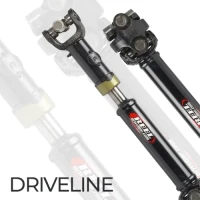
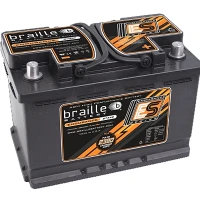





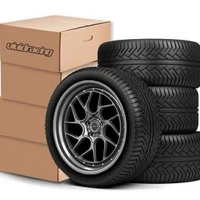

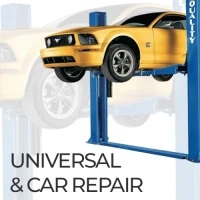
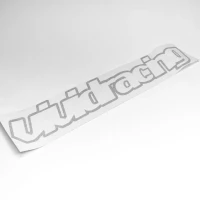
.jpeg?q=90&p=thumb&w=40&h=40) Brakes
Brakes  Driveline
Driveline  Electronics
Electronics  Handlebars & Controls
Handlebars & Controls  Package Deals
Package Deals  Wheel Accessories
Wheel Accessories  Wheels by Vehicle
Wheels by Vehicle  Tools and Maintenance
Tools and Maintenance  Universal & Repair
Universal & Repair  Vivid Racing Gear
Vivid Racing Gear 




